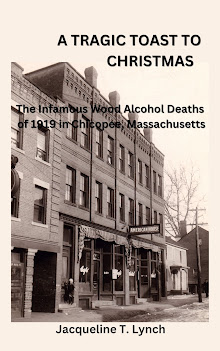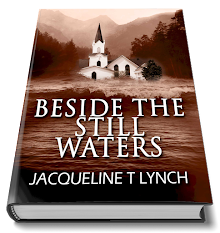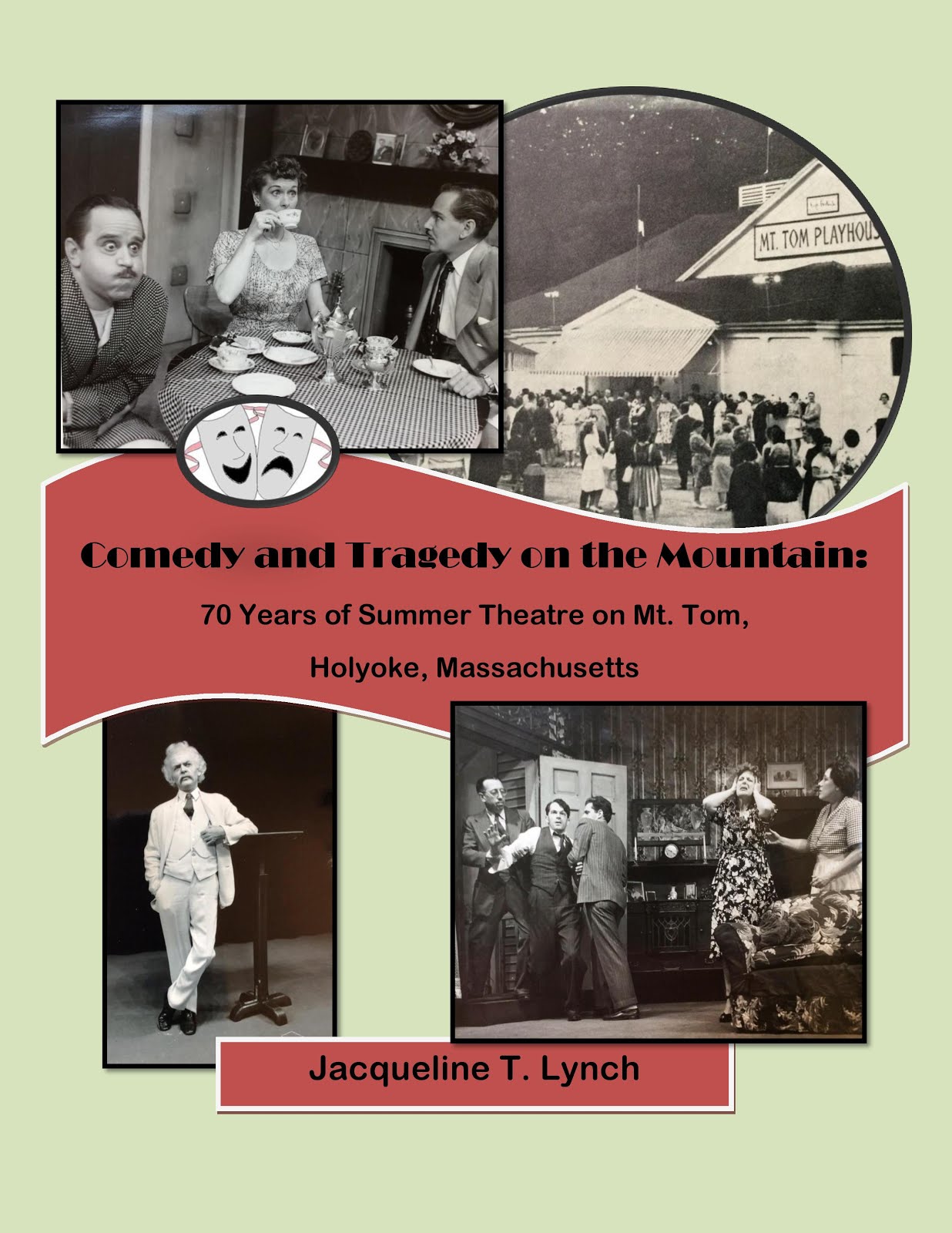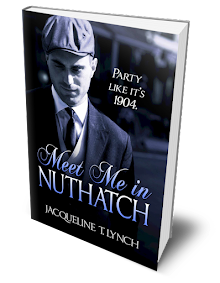A few photos in anticipation of the upcoming Labor Day holiday. Once upon a time, it meant more than the last backyard barbecue of summer.
Tuesday, August 27, 2013
Hard Labor in New England
The Fisk, Chicopee, Massachusetts, likely in the late 1930s. Image Museum website.
Isaac Prouty Boot & Shoe Co, Spencer, Massachusetts, Spencer Historical Museum Collections. Richard Sugden Library, Spencer, Massachusetts.
Skinner Mfg. Co., Holyoke, Mass. Image Museum website. See here for my previous posts on the Skinner silk mills: http://newenglandtravels.blogspot.com/2012/01/william-skinners-silk-mills-holyoke.html
War worker in 1942. Gilbert Company, New Haven, Connecticut. Photo Howard Hollem, Office of War Information. See here for my previous post on women war workers:
Boys who worked at a cotton mill in North Pownal, Vermont, 1910.
Lewis Wickes Hine, photographer, Library of Congress
Eastport, Maine, East Coast Canning Co., 1911,
Lewis Wickes Hine photographer, Library of Congress
Fiskeville, Rhode Island, Jackson Mill, 1909,
Lewis Wickes Hine photographer, Library of Congress
There but for the union go I. Or you. Happy Labor Day.
Posted by
Jacqueline T. Lynch
at
9:30 AM
0
comments
![]()
Labels: 20th Century, Connecticut, holidays, Maine, manufacturing, Massachusetts, Rhode Island, Vermont
Monday, August 19, 2013
Dutch Island Lighthouse - Rhode Island
Dutch Island sits in the West Passage of Narragansett Bay,
Rhode Island. It was originally used as
a trading outpost by the Dutch from New Amsterdam (you know it as New York),
but the young United States thought it a
good spot to fortify with cannon in case of sea invasion, and these
fortifications remained from the Civil War through World War I.
A sturdy little 40-plus feet tower nesting on its rock, the
light was automated in the 1940s.
Vandalism came in the 1960s and ‘70s, but the locally formed Dutch
Island Lighthouse Society came to the rescue and stored the structure. It resumed operation in 2007.
Have a look here at their site for some great photos and
current info, and here for additional statistics and history on this lighthouseand its keepers.
Posted by
Jacqueline T. Lynch
at
11:13 AM
0
comments
![]()
Labels: 19th century, 20th Century, 21st Century, Civil War, lighthouses, Rhode Island, seascapes, World War 1
Tuesday, August 13, 2013
George M. Stearns - The Parson's Devil
In this era of well-rehearsed sound bites and video imagery, it is rare to see the true and natural personalities of our public figures. The picture we get is intentionally artificial, but there was a time when common folk rose in politics and society and became large in the public eye though the force of their own natural personalities. One such man was George M. Stearns, a lawyer-orator of the nineteenth century.
In his white linen suit,
Mr. Stearns dispensed his observations with Twain-like sarcasm. “If a man fell
on the sidewalk, he brushed himself off, and went about his business. If a man falls now he doesn’t get up until he
thinks whether he can sue someone for damages.”
George Stearns lamented
the overuse of our judicial system over one hundred years ago. In Clifton Johnson’s The Parsons Devil (1927, Thomas Y. Crowell Company), Stearns is
painted as a clever lawyer, a practical-joking character whose sense of humor
was his calling card. From this biography
we also get a unique view of the western Massachusetts down of Chicopee in the nineteenth century.
It was in August 1848,
only a few months after Chicopee became an incorporated town, that Stearns came
here from his boyhood home farther north in the small town of Rowe, where his father was a Unitarian minister -- whereby Johnson titled his book The Parson's Devil. He was seventeen and began his apprenticeship
in the law office of John Wells, who had also been born in Rowe. Wells later served in the state legislature,
and was a future Massachusetts State Supreme Court Judge.
Young George Stearns
swept his office, did chores, “read law” and mostly learned what it was like to
be suddenly a part of a growing industrial community. Stearns latched on to Chicopee, in the early
years of its industrial might, and he savored it.
“The small brick
dwellings along Exchange Street were occupied by the solid residents of the
village,” Stearns recalled. On the hill
above the main village of Cabotville, there were woods, a few farmhouses, and
dirt paths for roads where “an occasional board was laid down in the early
spring to prevent your going knee deep in mud.”
Illustration, Chicopee 1856, original in Edward Bellamy Memorial Association
collection, Chicopee, Mass.
Chicopee was a staunch
Whig town, where politics was discussed at Joe Bagg’s drugstore. Abner Abbey read the newspapers aloud, and
according to Stearns, much of the Civil War was fought right there over the
cracker barrels.
Stearns married, had
two daughters, and settled in the Springfield Street house which still stands
across the street from the mansion that once belonged to his old colleague,
George Robinson. (George Robinson,
former Chicopee High School principal and future Governor of Massachusetts, was
also a noted attorney who successfully defended Lizzie Borden. See this previous post.)
George Robinson
Though both Georges were cordial with each other,
and both members of the Unitarian church, they did not always see eye to
eye. Much later in their careers when
Stearns became a figure of the Democratic Party and Robinson in the Republican
Party, Robinson supported James Blaine over Grover Cleveland for president. Stearns remarked, “It reminded me of a pettifogger
defending a chicken thief.”
In these days when
political accusations are nastier and behavior vile, it seems amazing that “pettifogger”
and “chicken thief” were once considered strong language.
Stearns was a master of
language. When he was arguing a case in
court, the gallery would fill just to see him.
He was a rascal, and a joker, and a bit of an actor. He could bring himself to tears in a defense
argument, or squash his legal opponent with sarcasm. At times his reputation for fun haunted him,
as biographer Johnson noted, “He used to get angry clean through because the
moment he got up to speak, the jurors would settle back expecting him to be
funny, and one or more of the asses among them were likely to laugh in the
middle of some of his most beautiful and eloquent passages.”
His reputation for
silliness was not undeserved. Stearns
once bought the pants right off of Chicopee Savings Bank treasurer and future Chicopee
mayor Henry H. Harris, who always kidded about him about his frugality. Another time he won a bet with Harris, who
had to pull Stearns home in a sleigh.
Stearns served in the
Massachusetts House of Representatives and in the State Senate. His advice was sought by political leaders in
Boston, but Stearns preferred to make his permanent home in Chicopee until 1894,
when frail health compelled him to move closer to his Boston physician, and he
died in December. His obituary in The
New York Times (January 1, 1895) noted, “He was considered one of the ablest
and most eloquent advocates, and one of the readiest and wittiest debaters in the
State. He was widely known as a jury
pleader, and had a very extensive criminal practice.”
At that time he left
western Massachusetts he lamented, “I’d rather see a piece of Chicopee sky than
anything else.”
Stearns Terrace and
Henry Harris Street intersect in the area that was still wooded when Stearns
came to Chicopee. The city’s growth might
amaze him. As for our propensity to sue
for damages, some things never change.
An earlier version of this article appeared in In Chicopee, a publication of
the Holyoke Transcript-Telegram, Holyoke, Massachusetts, May 1992. Photos are in the public domain, from the Image Museum website.
Posted by
Jacqueline T. Lynch
at
7:00 AM
0
comments
![]()
Labels: 19th century, business, Massachusetts
Tuesday, August 6, 2013
On Stage and Screen - Summer 1965
One is first struck by how much there was to do, how vibrant the local entertainment scene in western Massachusetts and northern Connecticut. This is a section of one page in the Springfield Daily News, from August 1965. Major Hollywood and stage stars at the local summer theaters: the Mt. Tom Playhouse in Holyoke, and the Storrowton Music Fair in West Springfield.
Drive-in theaters that no longer exist here. Several neighborhood movie theaters offering air conditioning and the latest films, including The Elms in Hartford, which the exclusive rights to that year's blockbuster The Sound of Music until October, seats reserved, $2.75 for an evening performance, $1.50 for a matinee.
The Everly Brothers appearing at Mountain Park in Holyoke, along with Jerry Lee Lewis at the "Over 18 Discotheque", and a kids' show featuring that superstar Bozo, and our local Swabby in the days when local TV stations produced their own programming.
These were the days before the boxy cinemas, when people still wore dresses, coats and ties to even a neighborhood theater.
The Springfield Giants were playing minor league ball at Pynchon Park in Springfield against the visiting Pittsfield team. Or you could see Lee Remick in Annie Get Your Gun or Dana Andrews or Mary Poppins at the drive-in, or "the over 21 dance in the Go-Go Room at Mountain Park. Why would anyone stay home?
Old newspapers are time machines. It's all gone now.
Posted by
Jacqueline T. Lynch
at
11:05 AM
0
comments
![]()
Labels: 20th Century, entertainment, Massachusetts, popular history, theatre
Subscribe to:
Posts (Atom)




















